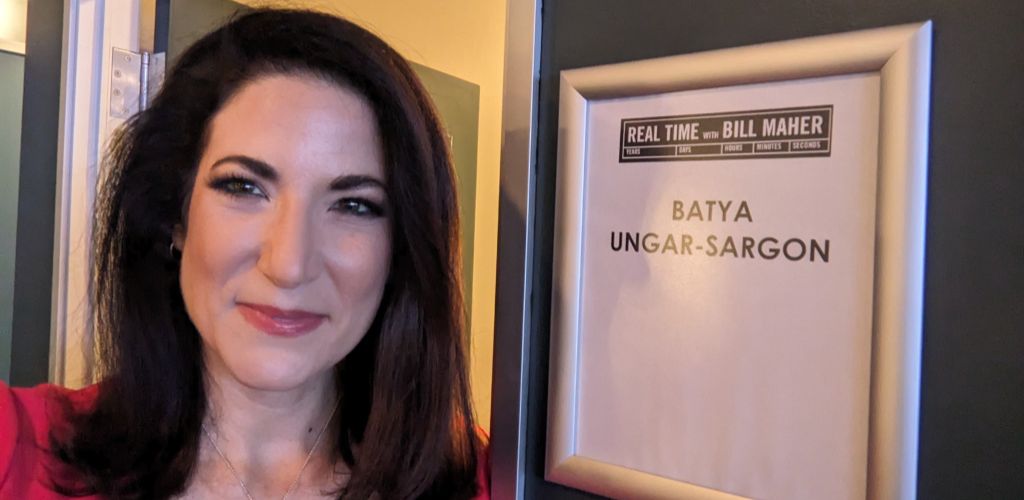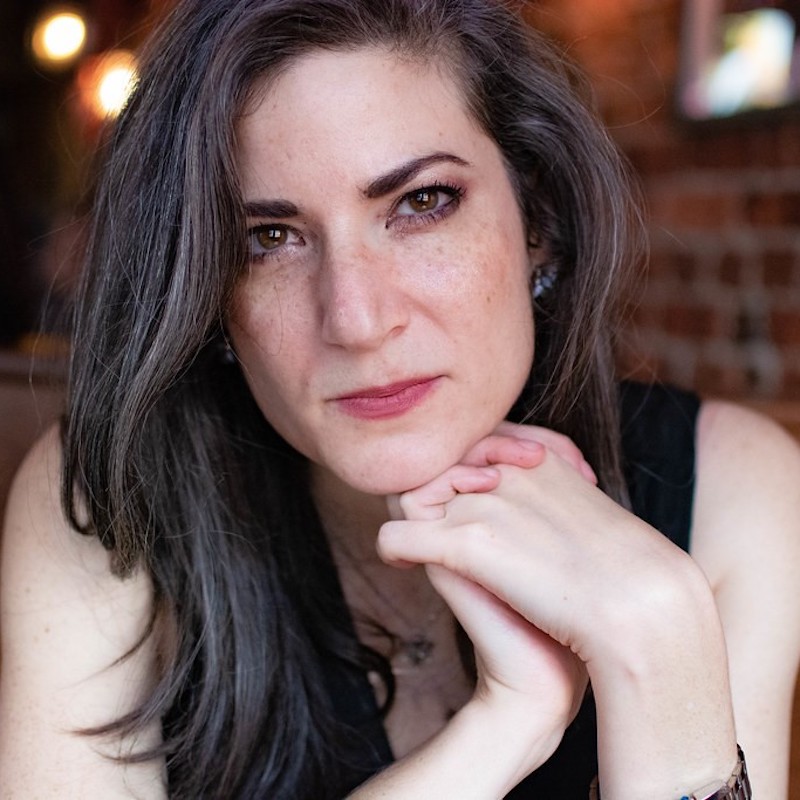Batya Ungar-Sargon is a prominent figure in contemporary media, known for her thoughtful commentary on various social and political issues. However, one aspect of her identity that often piques public interest is her ethnicity. Understanding Batya's background can shed light on her perspectives and contributions to the discourse in today's world. In an increasingly diverse society, the ethnic backgrounds of public figures often play a significant role in shaping their viewpoints. For Batya, her ethnicity has undoubtedly influenced her journey as a journalist and author, allowing her to bring unique insights to the table.
As the conversation around identity continues to evolve, many are keen to explore how an individual's ethnicity can impact their professional endeavors and personal experiences. Batya Ungar-Sargon stands as a compelling case study in this regard. By examining her ethnicity, we can better appreciate the nuances of her work and the cultural lenses through which she views the world.
In this article, we will delve deeper into the ethnicity of Batya Ungar-Sargon, her background, and how these elements have shaped her career. We will also address common questions surrounding her identity and the significance of ethnicity in the media landscape today.
What is Batya Ungar-Sargon's Biography?
Batya Ungar-Sargon is a journalist, author, and editor known for her incisive analysis of cultural and political issues. Born and raised in the United States, she has established herself as a prominent voice in media, contributing to various publications and appearing on numerous platforms to discuss pressing societal matters. Her work often examines the intersections of culture, politics, and identity, making her a vital figure in the ongoing conversation about these themes.
What are Batya Ungar-Sargon's Personal Details and Bio Data?
| Detail | Information |
|---|---|
| Name | Batya Ungar-Sargon |
| Profession | Journalist, Author, Editor |
| Nationality | American |
| Ethnicity | Jewish |
| Education | University of California, Berkeley |
| Notable Works | Woke Baby, The New York Times, The Forward |
How Does Batya Ungar-Sargon's Ethnicity Influence Her Work?
Batya Ungar-Sargon's ethnicity plays a critical role in shaping her perspectives and the narratives she chooses to explore. As a Jewish woman, her background informs her approach to discussions surrounding identity, culture, and politics. This unique lens allows her to engage with topics that resonate with a wide audience while also addressing the specific challenges faced by marginalized communities.
What are the Themes in Batya Ungar-Sargon's Work Related to Ethnicity?
Throughout her career, Batya has tackled various themes pertinent to her ethnicity and the broader cultural landscape. Some recurring themes include:
- Identity and Belonging: Examining the complexities of cultural identity, particularly in the context of Jewish heritage.
- Intersectionality: Addressing how different aspects of identity, including race, gender, and ethnicity, intersect and influence individuals' experiences.
- Social Justice: Advocating for the rights of marginalized communities and highlighting systemic injustices.
- Media Representation: Critiquing how ethnic groups are represented in the media and advocating for more authentic portrayals.
Why is Batya Ungar-Sargon's Perspective Important in Today's Media Landscape?
In today's media landscape, Batya Ungar-Sargon's perspective is crucial for several reasons. Her unique background and experiences allow her to contribute to discussions that are often overlooked or misrepresented. By sharing her insights, she challenges dominant narratives and encourages a more inclusive dialogue around ethnicity and identity.
How Does Batya Ungar-Sargon Address Ethnicity in Her Writings?
Batya Ungar-Sargon often weaves her ethnicity into her writings, using it as a lens through which she examines broader societal issues. She highlights the importance of understanding cultural context when discussing political and social matters, emphasizing that ethnicity cannot be separated from the individual experiences that shape a person's worldview. Her approach encourages readers to consider the multifaceted nature of identity in their analyses of contemporary issues.
What Are the Challenges Batya Ungar-Sargon Faces as a Jewish Journalist?
As a Jewish journalist, Batya Ungar-Sargon encounters various challenges that stem from her ethnicity. These challenges may include:
- Antisemitism: Navigating a landscape where antisemitic sentiments can affect both personal and professional interactions.
- Representation: Striving for accurate representation of Jewish communities in media while combating stereotypes.
- Balancing Perspectives: Finding a balance between advocating for her community and addressing broader societal issues.
How Does Batya Ungar-Sargon Advocate for Diversity in Media?
Batya Ungar-Sargon is a passionate advocate for diversity within the media industry. She emphasizes the importance of having diverse voices and perspectives represented in journalism. By championing inclusivity, Batya ensures that the stories of various ethnic communities are told authentically and with nuance, allowing for a richer understanding of societal issues.
What Can We Learn from Batya Ungar-Sargon's Ethnic Background?
Batya Ungar-Sargon's ethnic background offers valuable lessons about the complexity of identity and the importance of representation in media. Her experiences highlight the need for a more inclusive dialogue that recognizes the intersections of race, ethnicity, and culture. By engaging with her work, audiences can gain a deeper appreciation for the diverse narratives that shape our understanding of the world.
In conclusion, the exploration of Batya Ungar-Sargon's ethnicity provides insight into her work, perspectives, and the broader media landscape. As a Jewish journalist, she navigates the complexities of identity while advocating for a more inclusive and equitable society. By understanding her background, we can better appreciate the significance of her contributions to contemporary discourse and the importance of diversity in media.
Article Recommendations
- The Ultimate Jameliz Benitez Onlyfans Experience Uncensored Photos And Videos
- Steamunlocked Download Cracked Games Free
- Uncover The Truth About Health A Conversation With Dr Jane Ruby


